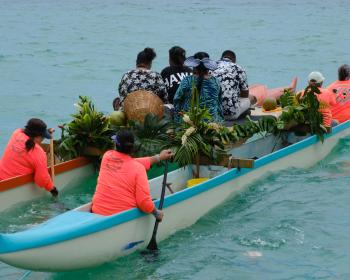By Tia-Alexi Roberts (Narragansett, CS Staff)
September 27 is World Tourism Day. Though it should be acknowledged that world tourism arguably contributes to some of the most impactful acts of harm towards the environment, it also offers opportunities for education, cultural exchange, and connection.


